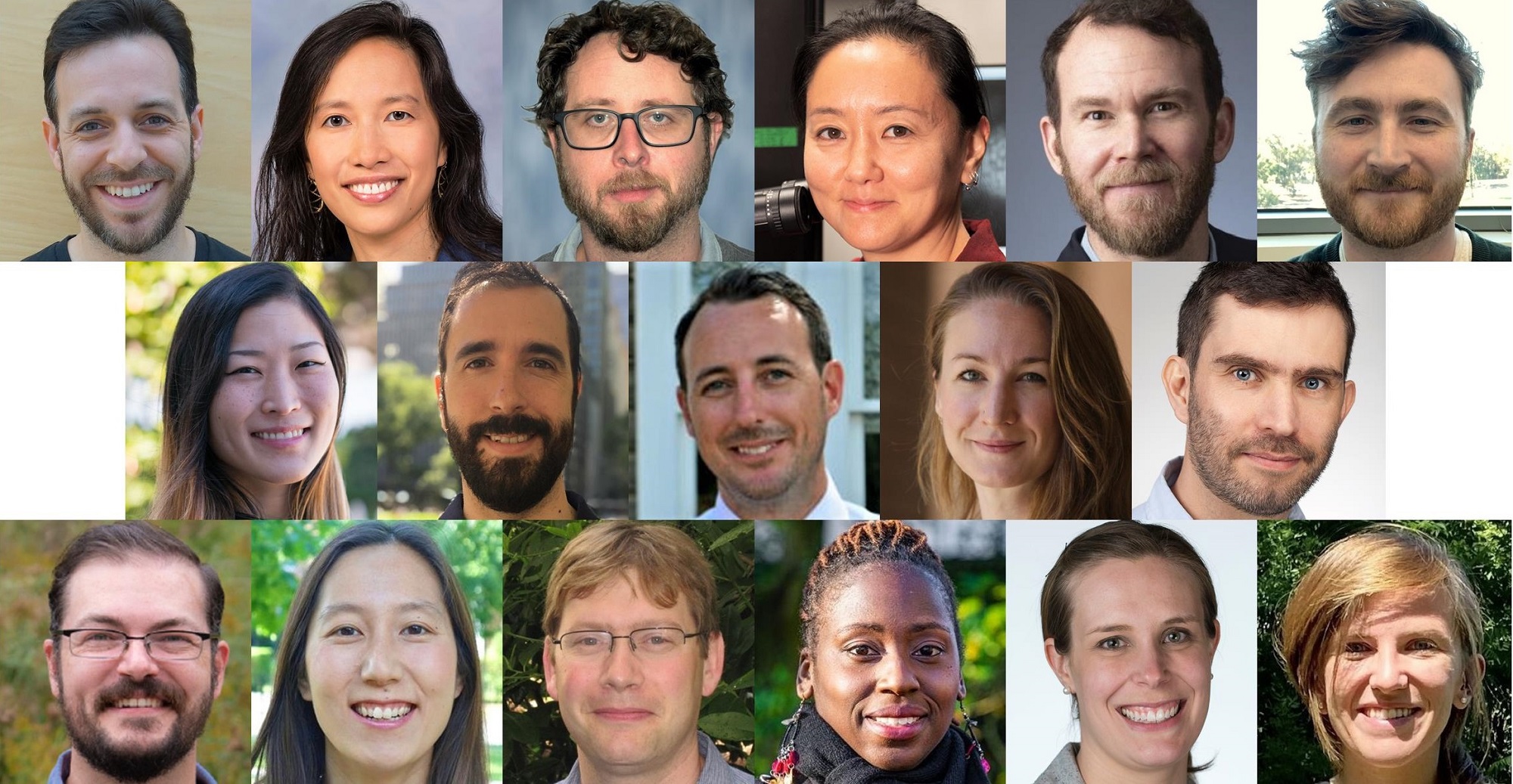17 Researchers from U.S., Canada Awarded Scialog: Molecular Basis of Cognition Funding

Top row: Lucas Pinto, Evelyn Tang, Daniel Burnston, Kate Hong, Benjamin Scott, Matthew Lovett-Barron. 2nd row: Christina Kim, Antonio Fernandez-Ruiz, Travis Baker, Megan Peters, Robert Wilson. 3rd row: Becket Ebitz, Elizabeth Hong, Gordon Berman, Patrese Robinson-Drummer, Allyson Mackey, Sydney Trask.
Six collaborative teams of early career researchers have won funding from Research Corporation for Science Advancement, the Canadian Institute for Advanced Research (CIFAR), the Frederick Gardner Cottrell Foundation, The Kavli Foundation and Walder Foundation in the inaugural year of the new Scialog: Molecular Basis of Cognition initiative.
The 17 individual awards of $50,000 in direct costs will go to researchers from a variety of institutions in the United States and Canada.
Scialog is short for “science + dialog.” Created in 2010 by RCSA, the Scialog format aims to accelerate breakthroughs by stimulating intensive interdisciplinary conversation and community building around a scientific theme of global importance. Participants are selected from multiple disciplines, approaches and methodologies and are encouraged to form teams to propose high-risk, high-reward projects based on innovative ideas that emerge during the conference.
“The fun of science is asking questions and sharing ideas, some of which might be a little bit off the wall,” said RCSA President & CEO Daniel Linzer. “Scialog aims to change the way science gets done by supporting bold ideas that are best approached as a collaboration, not a competition.”
The conference, held October 13-16, 2022, in Tucson, Arizona, engaged participants in a series of conversations to build a community eager to share their expertise, discuss challenges and gaps in current knowledge, and devise new ways to probe the chemistry, biology, physics and computational science that underlie memory and other cognitive processes.
Keynote speakers set the stage for breakout discussions with talks on their research, the limits of current knowledge, and where they see opportunities for breakthrough science. Marina Picciotto, Yale, detailed her group’s work to determine what regulates two-way communication between the body and brain in opioid use. Adam Cohen, Harvard, described how his research combines molecular, optical and computational approaches to develop toolkits for mapping memory-related dynamics in the brain.
In addition to Picciotto and Cohen, discussions were guided by an expert group of Facilitators including Roberta Diaz Brinton, Arizona; Jacqueline Gottlieb, Columbia; Martin Gruebele, Illinois; Jacob Hooker, Harvard; and Adina Roskies, Dartmouth.
The second meeting of Scialog: Molecular Basis of Cognition is scheduled for October 12-15, 2023.
The following MBC teams will receive 2022 Scialog Collaborative Innovation Awards:
Lucas Pinto, Neuroscience, Northwestern University *
Evelyn Tang, Physics and Astronomy, Rice University ^
Daniel Burnston, Philosophy / Brain Institute, Tulane University †
Network Topology Underlying Circuit Dynamics During Flexible Cognitive Behavior
Kate Hong, Biological Sciences, Neuroscience Institute, Carnegie Mellon University †
Benjamin Scott, Psychological and Brain Sciences, Boston University †
Matthew Lovett-Barron, Neurobiology, University of California, San Diego †
Understanding Cortical Control Over Subcortical Structures Using an Evolutionary Inspired Engineering Approach
Christina Kim, Center for Neuroscience & Department of Neurology, University of California, Davis ^
Antonio Fernandez-Ruiz, Neurobiology & Behavior, Cornell University †
Bridging Mechanism of Memory Across Levels
Travis Baker, Center for Molecular and Behavioral Neuroscience, Rutgers University †
Megan Peters, Cognitive Sciences, University of California, Irvine ‡
Robert Wilson, Psychology, University of Arizona †
Beyond Computational Behaviorism: The Structure of Thought in Naturalistic Behaviors
Becket Ebitz, Neuroscience, Université de Montréal †
Elizabeth Hong, Biology & Biological Engineering, California Institute of Technology †
Gordon Berman, Biology, Emory University †
FlyRanch: A Platform for Uncovering the Molecular Bases of Hidden Behavioral State Dynamics
Patrese Robinson-Drummer, Psychology, Haverford College †
Allyson Mackey, Psychology, University of Pennsylvania ‡
Sydney Trask, Psychological Sciences, Purdue University †
From Cradle to Grave: Measuring the Lifetime Impact of Early-Life Stress
* Funded by Walder
^ Funded by The Kavli Foundation
† Funded by RCSA and the Frederick Gardner Cottrell Foundation
‡ CIFAR Azrieli Global Scholar funded by CIFAR






